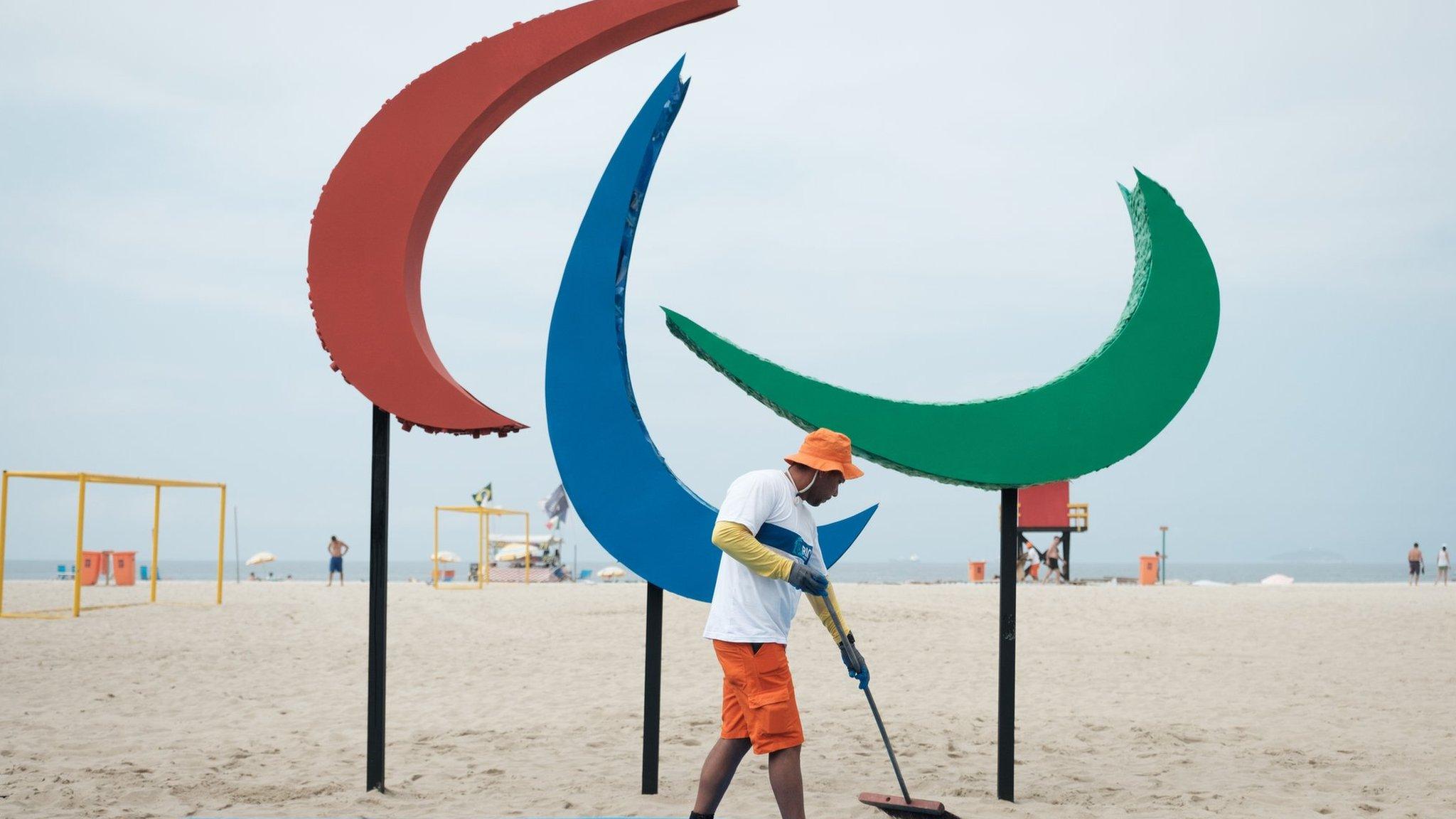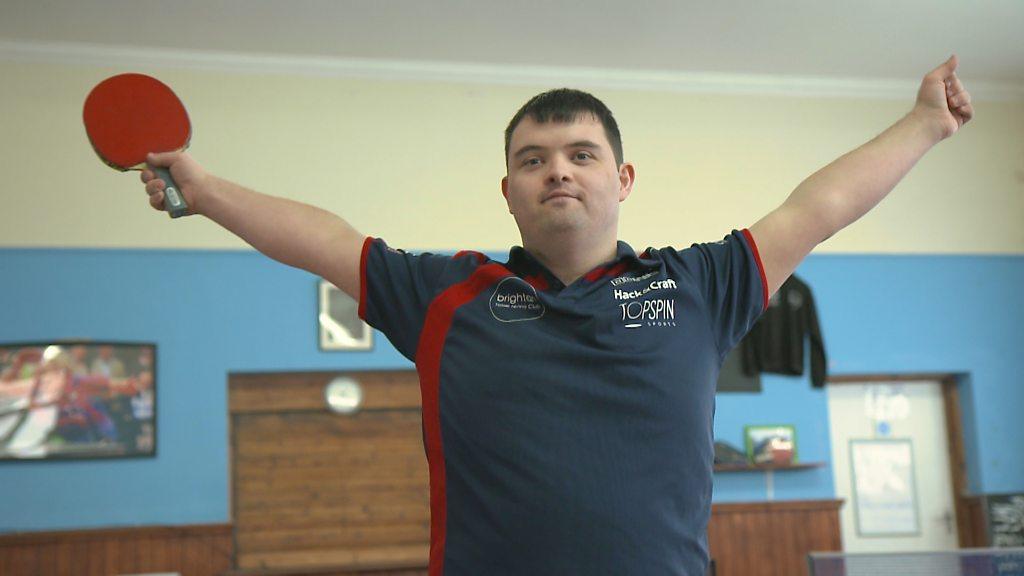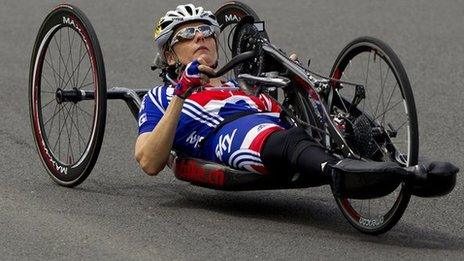UK Athletics Para-athletes classification 'could be abused'
- Published

UKA's review follows concerns that classifications were being manipulated to boost medal chances at the Rio 2016 Paralympics
The classification system for British track and field Para-athletes "could be abused" and is "open to exploitation", according to a UK Athletics review.
The review found a "wide consensus" among those with experience of the system that rules could be exploited, also identifying methods of doing so.
It follows claims before the Rio 2016 Paralympics that classifications could be manipulated to boost medal chances.
Yet, there is "no substantive evidence" to suggest widespread cheating.
A four-person panel, chaired by Paralympic wheelchair racer Anne Wafula Strike, conducted the review between November and February, with its findings revealed on Tuesday.
It concluded the system could be abused, "should an athlete or support personnel be sufficiently motivated, have an understanding of the classification process and have an impairment that lends itself to exaggeration."
The classification system puts athletes into groups depending on the level of their impairment to try to ensure fair competition.
However, the UKA review found various methods of undermining those rules, including:
Athletes with neurological conditions arriving at classification evaluations tired in order to perform poorly
Athletes altering medical forms and/or supporting evidence before submitting them to UKA
Athletes presenting medical reports from doctors who are sympathetic to the athlete
Employing such methods could allow an athlete to exaggerate their level of disability and gain an unfair advantage, potentially increasing their chances of medals.
Baroness Grey-Thompson, an 11-time Paralympic champion, has previously raised concerns over athletes abusing the system, adding the issue "goes to the heart of the integrity of the sport".
British sprinter Bethany Woodward, who has cerebral palsy and was not selected for Rio, gave an interview before the Games saying she had lost faith in the way the team was selected., external
As part of the review, 26 individuals with experience of the classification system were invited to interviews - 20 of whom accepted - including current and former athletes, coaches and support staff, some of whom had also previously expressed issues with the system.
The findings also drew on other expertise, as well as that of the panel members Wafula Strike, Professor John Brewer of St Mary's University, Iain Gowans of the British Paralympic Association and Peter Taylor of the UKA board.
A Paralympic-wide problem
The report also highlighted difficulties in detecting classification abuses from performances alone, with Para-athletics a "young sport" where records are "broken frequently, sometimes by large margins," while systems of classification are also still developing.
Yet it also warned that the issue "is not exclusive to athletics" but can be seen across Paralympic disciplines.
Despite focusing on UKA's classifications system, the review also noted possible discrepancies between the UKA and the system used by World Para Athletics (WPA).
UKA handles classifications for track and field athletes in the UK, while the WPA controls international competitions classification and other sports regulate their own classification.
Those interviewed by the panel also raised uncertainties that coaches and athletes understood both systems, as well as concerns over the lack of a forum to explain athlete classifications and the absence of an appeal process against potential incorrect allocation that is independent of UKA.
What are their recommendations?
UKA chair Ed Warner confirmed that a number of recommendations made by the report will be implemented in full, including improving the standard of medical documentation, with particular focus on those with fluctuating conditions.
The review also calls for an oversight committee, independent from UKA, to manage the appeals process, as well as a panel of independent clinicians to review medical data.
Despite the issues raised, the panel also found UKA's classification to be "robust" and often cited as "an exemplar of best practice", with Wafula Strike hoping the implemented recommendations mean UKA continues "leading the way" in ensuring the integrity of Para-athletics.
Brewer added: "Many of the recommendations we have made will, we believe, allow the process in the future to be more flexible, responsive to change and - if appropriate - open to challenge and closer review."
- Published6 September 2016

- Published21 March 2018

- Published5 September 2016
